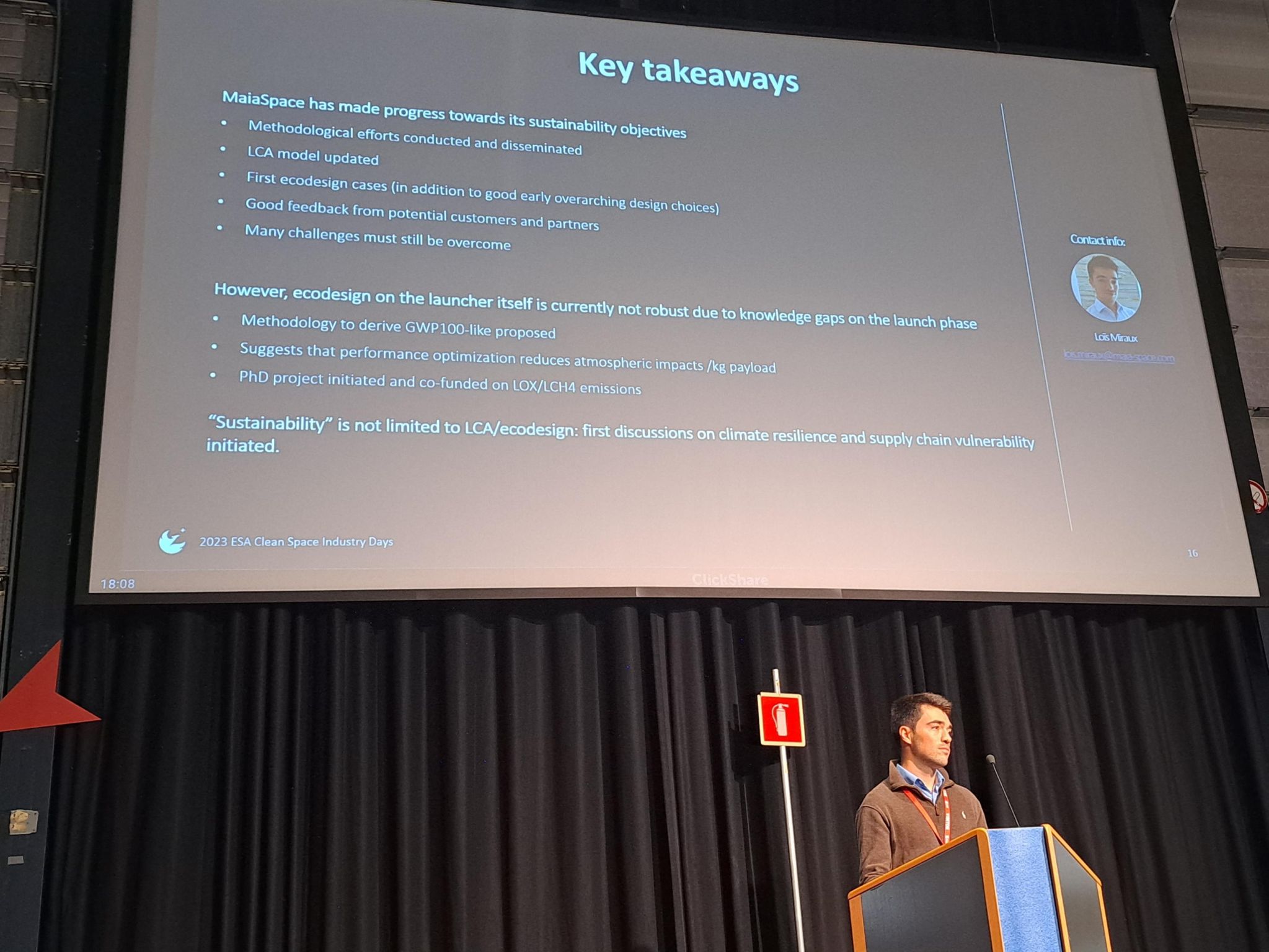2023 Clean Space Industry Days
08.11.2023

Last month, MaiaSpace took part in the ESA Clean Space Industry Days, where our environmental expert Loïs Miraux presented the progress made in the implementation of the company’s sustainability strategy to provide feedback and share lessons learned to the community on a real-case implementation of Life Cycle Assessment (LCA) and ecodesign in the space industry.
✅ Building upon heritage
An LCA of a reusable launcher precursor of MaiaSpace was carried out in 2021 building upon ArianeGroup and CNES heritage. For the first time, the environmental consequences of launcher stage reusability were portrayed including specific life phases and allocation conventions, which required the development of a dedicated methodology. An analysis of the main impact mitigation levers was also conducted, constituting a rough roadmap for ecodesign for the early stage of our launch service.
This work was presented at the 73rd International Astronautical Congress in Paris (Miraux et al. 2022).
The findings on reusability were later supported by independent studies from Dominguez et al. (2022) and Fischer et al. (2023), which both analyzed the environmental impacts of different launcher architectures and reusability strategies.
✅ Making progress
At MaiaSpace, we were able to progressively update the LCA model as the design of the launch service advanced, but also to implement first concrete cases where environmental performance was incorporated into the design trade-off process. We now have a fair understanding of the impacts over our lifecycle for operations occurring on the ground, which allows us to work on the main levers to reduce them. This includes the use of biomethane, low carbon shipment, or design and industrial processes minimizing raw material requirements.
❔ Knowledge gaps on the launch phase
That being said, scientific knowledge is still scarce regarding what occurs during the launch phase. It is critical since existing studies indicate that most of the impacts on the atmosphere occur during this phase due to particles and water vapor emissions accumulating in its uppermost layers. For this reason, all these effects cannot be integrated into LCAs yet.
✅ Co-funding research
Although new propellants like LOx/Methane powering our two stages are expected to drastically cut particle emissions (black carbon), the precise amount is still to be determined. As we consider it is our responsibility to better characterize such impact, we have decided to initiate and co-fund a PhD project with ONERA on this specific topic.
✅ Developing and sharing methodology
In the meantime, we have developed an in-house, transparent methodology based on the best available knowledge to roughly compare the effects of the launch phase with other phases of the product lifecycle, allowing us to make more informed decisions. We have shared our methodological proposals with interested parties hoping it will help the ongoing standardization effort!